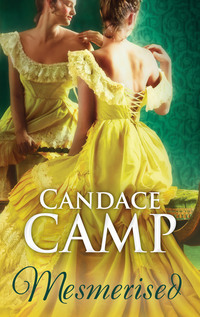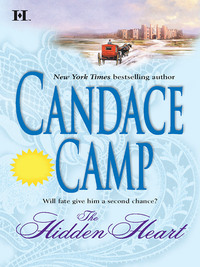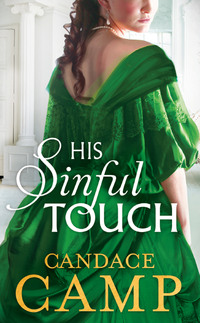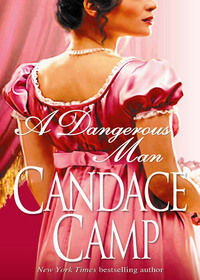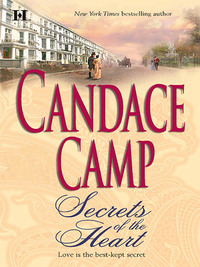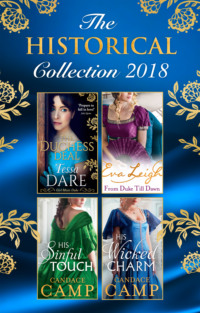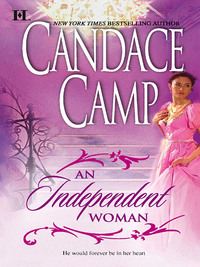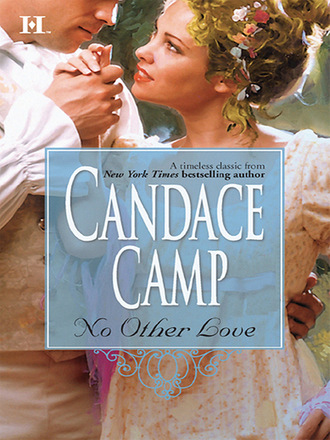
Полная версия
No Other Love
At her response, he wrapped his arms around her, pulling her into him, and his mouth claimed hers. They clung together, lost in the moonlit night, heat mingling with heat, bodies alive with sensations, hearts pounding so loudly they could not distinguish one from the other. It was a moment that seemed to hang in eternity, endlessly breathtaking.
At last Gil raised his head and looked into her eyes, his own dark orbs flaming. And Nicola knew at that moment that none of the conventions mattered—nor their stations in life or their families’ wishes or Society’s shocked exclamations. There was only one man in the world for her.
“I love you,” Nicola breathed.
CHAPTER THREE
1815
TEARS GLITTERED IN NICOLA’S EYES, turning the coals of the fire into a red, wavering curtain. She would never love like that again.
She sat up, wiping the tears from her eyes in quick, almost angry gestures. It seemed unfair that that old pain should come sweeping in on her like this, slashing through her chest, reminding her of her loss as if it were a fresh wound, as if Gil had died only last week instead of ten years ago.
After all, she was content with her life now. She had accepted the fact that for her there would be no wedding day, no children, no growing old together. That part of her life was over, even if she was only twenty-seven years old. She had moved on. She had developed things in her life that were pleasing to her. She helped women in the East End; she gave them some hope, she thought. She matched wits with others at her eccentric aunt’s salon. She danced at parties and went to the opera and flirted when she felt like it with certain men to whom she knew it meant no more than it did to her.
Her life was full—or full enough, she reasoned. There were other women who had less than she, aristocratic women who had married as they were expected to and lived in loveless unions with nothing to interest them except clothes and gossip. There was her own sister, for instance, tied to a man like the Earl of Exmoor, miserably childless and panicked by fear that she would once again miscarry.
Better by far the life she had. Nicola swallowed hard and stood up from the bed, straightening her dress. She was foolish to wallow in her old grief, she told herself sternly, going to the dresser and pulling open drawers until she found where the maid had stowed her nightdress. She laid the gown out on the bed and began to undo the buttons of her dress.
No more thinking about her lost love. No more feeling sorry for herself. It was an isolated instance, she reasoned, brought on by being back here at the place where it had all happened. But she had grieved for Gil for ten years; she had long ago gone through the dark pit of despair and come out without losing her sanity or her life. She had learned to live the life that had been given to her. And she was not going to let herself be overwhelmed by old grief just because she was at Tidings.
On that firm note, she slipped out of her clothes, neatly laying them aside over the chair, and pulled on her nightgown. Extinguishing the oil lamp on the small bedside table, she climbed into bed and settled under the covers. But even though she determinedly shut her eyes, it was a long time before sleep crept over her, and when it did, tear tracks stained her cheeks.
“ISN’T IT A LOVELY MORNING?” DEBORAH asked, setting down her teacup and gazing happily around her at the small garden. “I am so glad that you suggested taking tea out here.”
It was midmorning, and she and her sister were sitting in the little garden beside the house, sheltered on one side by the looming house and on two others by an outside wall. It was a mild winter’s day and pleasantly warm in the small area. Winds did not reach here, and though in the afternoon it was cast deep in shadows, in the morning, the sun shone brightly in it. Two stone benches had been placed here long ago for enjoyment of the sheltered location, and a small fountain and delicate green bushes enlivened the area.
Nicola smiled at her sister. Deborah looked much better this morning. Obviously she had had a good night’s rest—more than Nicola herself could say—and just being out of the house had brought a little bloom to her cheeks. Nicola was glad that she had suggested coming out here to have their cup of tea while they chatted.
“Yes,” she agreed. “It is pleasant. I am so happy to see you looking well.”
Deborah grinned. “Not as happy as I. It is wonderful having you here. Now…” She leaned forward, eyes alight with curiosity. “You must tell me all the gossip from the City. Mama wrote me that that plain little Penelope Castlereigh has caught our cousin Bucky. Is that true? And is Lord Lambeth really marrying an adventuress?”
Nicola made a face. “That certainly sounds like Mother’s version of events.”
After Gil’s death, ten years ago, Nicola had left the area, unable to bear the constant heartbreak of living where she and Gil had loved. She had moved to London to live with her aunt, and her mother, angry with her at the time for having turned down Lord Exmoor’s offer, had been happy to let her go. But after Deborah had married the Earl, Lady Falcourt had relocated to the City herself, where she had insisted that Nicola come to live with her. Anything else “looked odd,” she explained. Nicola suspected that it was simply that she wanted someone to listen to her recitals of her many illnesses and their symptoms, and to offer her the appropriate sympathy and errand-running. She had resisted for some time, much preferring life with her forward-thinking aunt, but at last she had given in to her mother’s tears and whinings, as was usually the case, and had moved into her mother’s house.
While Nicola ran the household, her mother rested, kept up a voluminous amount of correspondence with people all over the country, and received the calls of her numerous middle-aged female acquaintances. As a result, though her mother rarely left the house, she knew all the gossip about everyone in Society—not only in London but in the whole of England.
“The truth is, Bucky simply woke up to Penelope’s wonderful qualities.” Nicola grinned, adding, “However, Marianne and I helped to lay a little trap.”
“Marianne? Oh! The beautiful red-haired woman at Bucky’s party?”
About a month earlier, Nicola had come with a number of other guests to her cousin’s estate for a house party. Among them had been Penelope Castlereigh, a distant cousin of the Earl of Exmoor, as well as Nicola, Lord Lambeth, and a beautiful woman named Marianne Cotterwood, whom Bucky at that time had been pursuing. Deborah had attended the ball Lord Buckminster had given during the weeklong house party and had met the guests, even though she had left early due to her “delicate condition.” She had, therefore, missed the tumultuous conclusion to the party, which had included a kidnapping and shooting.
Nicola looked at her sister, wondering how much of the story she had heard from Richard. Nicola suspected that Deborah’s husband did not tell her everything, especially any events that might reflect badly on him.
“Yes. That is Marianne.”
“Isn’t she the one whom Lambeth is marrying?”
Nicola nodded. “Yes, but she is not an adventuress, as Mother said.”
“Then who is she? Tell me about her. I had never seen her before—or even heard of her.”
“No one had, until Bucky tumbled knee-deep in love with her. It is quite a tale.” Nicola looked at her sister’s bright eyes and rising color and decided that a bit of gossip was doing her a world of good. “I met her only a week or two before Bucky brought everyone down to his estate for the party. The fact of the matter is, she is the whole reason that Bucky even had the party. He was quite enamored of her. Bucky and Penelope met her at a crush of Lady Batterslee’s, and Bucky urged me to invite her to a soiree Mother and I had the next week. Of course, I did; I was dying of curiosity to see who this ‘Mrs. Cotterwood’ was. Bucky could talk of nothing but her. I liked her immediately, but I was a little concerned because Bucky was so head-over-heels.
“Frankly, I was a trifle worried, too, that she might be an adventuress,” Nicola continued. “Besides, I knew how much Penelope loved Bucky, and I kept hoping that someday he would wake up and realize what a treasure he had right there in front of him. So I was quite prepared to dislike Mrs. Cotterwood. But once I met her, I couldn’t help liking her, just as Penelope did. Marianne had no interest in Bucky. In fact, she is the one who came up with a delightful scheme that cooled Bucky’s fever for her and threw him right into Penelope’s arms.” Nicola smiled at the memory. “I wish you could have seen her performance.
Whenever Marianne was around him, she played the most shallow, self-centered creature in existence, making sure always to leave him with Penelope for comfort and advice. Eventually, even Bucky saw that he was pining after the wrong woman. And Lord Lambeth, as you know, won Marianne’s hand.”
“When are Bucky and Penelope to be married?”
“Soon. They are going to be married here in the village church in a month. It seemed only right, what with an alliance between a Buckminster and a Montford.” The Montfords, the family to which the Earl of Exmoor belonged, and Lord Buckminster’s family were the noble clans of the area.
“That’s true. Penelope’s mother was a Montford,” Deborah mused. “I sometimes forget that Lady Ursula and her mother are Richard’s cousins. We see them so rarely.”
Nicola carefully made no comment. It was a well-known fact that Penelope’s grandmother, the Dowager Countess of Exmoor, had little liking for the man who had inherited the title when her own husband died. Though the Countess sometimes wintered in the Dower House, which was also in the area, Nicola doubted that she called on or received the Earl of Exmoor.
“The Countess is in her element, let me tell you,” Nicola continued, sliding past the subject. “Preparing the whole thing as if it were an army going to battle. She and Penelope and Marianne will be driving up to the Dower House in a couple of weeks to oversee the preparations. I can hardly wait for you to get a chance to talk to Marianne.”
“But I cannot imagine Lady Ursula letting anyone else arrange Penelope’s wedding,” Deborah protested, mentioning Penelope’s overbearing mother. “And do you mean that the Countess is taking on Marianne’s wedding, also?”
“Even Lady Ursula will back down in the face of money. The Countess knew that Penelope would not get the wedding she wanted if Lady Ursula was in charge of it. So Lady Exmoor told Ursula that she would pay for the entire cost of her granddaughters’ weddings—but she made it clear that her word was the one that would be final in all matters. You know what a skinflint Penelope’s mother can be. She gave in—though you may be sure that she does her best to try to run the thing, anyway. As for Marianne’s wedding—well, that is the most fantastical thing of all. I wonder that Richard hasn’t told you about it.”
“Richard? But why would he? Men have little interest in nuptials, I find.”
“Yes, but I would think he has quite a bit of interest in Marianne. You see, it turns out that she is Lady Exmoor’s granddaughter, too—Richard’s cousin.”
“What!” Deborah stared at Nicola, her jaw dropping. “You’re joking!”
“Not a bit.” Nicola shook her head. “She had been lost to the family for years. That is why no one knew her. But she is one of Lord Chilton’s children.”
“Lord Chilton? The Countess’s son? But he—didn’t he and all his family die years and years ago? I mean, that is why Richard inherited the earldom, is it not? Otherwise Chilton would have been Earl after the old Earl died.”
“That is what everyone has believed all these years.” Nicola shrugged eloquently. “But it turned out that the children escaped. It was only Lord Chilton and his wife who died.”
“But…this is fantastical! How could Lady Exmoor not know? What happened to them?”
Nicola knew that she was treading on shaky ground here. She could hardly tell Deborah what the Countess believed had happened without bringing Richard into it. And she could not bring herself to tell her sister, especially in the condition she was in right now, what a thorough blackguard her husband really was.
“I, uh, I’m not exactly sure about all the details,” Nicola hedged. “But apparently the children were rescued by a friend of Lady Chilton’s, an American.”
“I see. Then she took them to the United States?”
“Yes, one of them. The boy, John, died of a fever he contracted on the journey. But the other, Marianne, uh, wound up in an orphanage.”
Nicola knew that Penelope and her grandmother believed that it was Richard who was responsible for the fates of both the children. When the children had been brought to London by Lady Chilton’s friend, she had turned them over to the Countess’s companion, a woman named Willa, because the Countess was prostrate with grief, believing her son’s entire family dead—and all this right on the heels of her own husband’s recent death. But Willa had confessed on her deathbed that she had given the children to Richard. She had been enamored of Richard and knew that the little boy John was the rightful heir to the title and estate of the late Earl, and that Richard had inherited only because Chilton and his son were both believed to be dead. Richard had then hidden the children away, sending the boy no one knew where, though Willa said that he had died not long after, and giving the little girl to one of his henchmen to get rid of. The man had put her into an orphanage.
“No! Oh, how awful! You mean, all these years, she didn’t know who she was?”
Nicola nodded. “This all came out a few months ago when the baby, the one taken to the United States, came here to visit and the Countess met her. It so happens that she looks exactly like her mother, and the Countess knew she must be a relation. Eventually it emerged that she was Alexandra, the youngest of Chilton’s children. After they were reunited, they set out to find Marianne.”
“How exciting! This is like a novel.”
“Yes. It even had a romance. Alexandra fell in love with Lord Thorpe, and they were married. The Bow Street Runner they hired finally tracked down Marianne—at Bucky’s party.”
“Was that when that awful man was killed? Richard told me about that, how the man was threatening one of the guests with a gun and Richard had to save her by shooting him?”
“Yes,” Nicola replied dryly. “He was threatening Marianne. The man who was killed had…had something to do with Marianne’s being placed in the orphanage.”
“The villain! Well, I am glad Richard shot him. It—it sounded so awful. I was very glad Richard had already sent me home earlier in the carriage.”
“It was awful,” Nicola agreed shortly, biting back the words she longed to say—that she suspected that it had been Richard’s own neck he was trying to save, not Marianne’s. “But even then, none of us knew, you see, why he had tried to kill Marianne. It seemed utterly senseless. Then the Bow Street Runner arrived the next day and revealed who Marianne was.”
“My!” Deborah’s eyes widened in wonderment. “How could Richard not have told me! Men are so silly sometimes. They think the dullest things are fascinating and then forget to even mention really exciting things.”
“The Dowager Countess has been happier than I have seen her in years,” Nicola went on. “She and Alexandra are ecstatic at being reunited with Marianne, and of course it was a dream come true for Marianne, finding her real family after all these years.”
“I should think so. What a wonderful story! And to end with a double wedding…” Deborah released a sigh of happiness. “I can hardly wait until they come to the Dower House and I can meet them. I—I see so few people here.”
“You should get out more,” Nicola urged. “You should come to London with Richard instead of staying here, rusticating.”
Deborah looked at her, her face falling into a look of sadness, and Nicola thought that she was about to say something, but at that moment a male voice came from behind them. “That is what I keep telling her. Perhaps she will listen more to a sister than to a husband.”
The two women turned around to see the Earl strolling along the dirt path toward them, smiling. He was followed by another man, a stocky, plainly dressed individual whose face looked as though it had never been visited by a smile.
“Richard!” Deborah smiled. “I didn’t realize you were there.”
“Hello, Richard,” Nicola greeted him coolly. She could never see him without thinking of Gil’s death, and though he had said it was an accident, she held him responsible. Now that she had learned from Penelope about the wicked things he had done, she was even more certain that he was a man driven by evil.
“I came out here to introduce my new employee to you. Ladies, this is the Bow Street Runner I told you I had hired. His name is George Stone. Mr. Stone, my wife, Lady Exmoor, and her sister, Miss Falcourt.”
“Milady. Miss.” Stone’s smile seemed carved out of granite, and he offered them a stiff little bow. He was not a tall man, but he was powerfully built, with a thick chest and arms that made his jacket fit him poorly.
“Mr. Stone wants to speak with you about the incident last night, Nicola,” Richard added. “He needs all the information you can give him to help capture this blackguard.”
“I am afraid I cannot tell him very much,” Nicola replied blandly. Little as she liked the highwayman, she had no good feeling about Mr. Stone, either, and she liked the Earl least of all. She found that she was not much inclined to aid Mr. Stone in finding the man who was tweaking Richard’s nose.
“You saw him, miss,” Stone said stolidly. “Surely you can tell me something about him.”
Nicola turned her most aristocratic gaze on the man, raising her eyebrows slightly as if amazed to find that someone such as he had dared to address her. “It was dark,” she said dismissively. “And he wore a mask. I cannot imagine what I could tell you about him.”
“What size man was he?”
“He was on a horse, Mr. Stone. How could I tell his height?”
“The coachman says he dismounted, miss, that he was standing in front of you part of the time. He says as how you slapped the man, miss.”
“Indeed, I did. I have no stomach for impertinence,” Nicola snapped, casting the man a significant look.
“I’m sure not, miss, but what I’m saying is, you must have gotten some idea of how tall he was then.”
Nicola sighed. “I suppose he was average height. Average build.”
“The groom says he was a large man, miss.”
“I presume he would seem so to the groom,” Nicola replied. “Jamie is a rather small man.” Her eyes flickered significantly to the top of the Runner’s head, indicating without saying anything that she found Mr. Stone rather lacking in inches, also.
“Yes, miss, I noticed.” Stone’s face turned even more expressionless, if that was possible. “Were there any distinguishing marks on the man? Anything about his clothing or his manner or his walk?”
“He spoke like a gentleman,” Nicola offered, knowing that this fact was already well-known. “As for his manner, his walk—I am sorry to disappoint you, Mr. Stone, but I was in fear for my life at the time, and I am afraid I did not notice many details.”
“Yes, miss. Thank you.” Stone sketched a rough bow toward Nicola, then turned to Richard, saying, “I shall look into the matter further, sir.”
Richard watched the man walk away, then turned toward Nicola. Raising his brows, he said lightly, “You seemed a trifle obstructive, dear sister-in-law.”
“Obstructive? Don’t be absurd, Exmoor. I don’t like Mr. Stone. I found him impertinent. But I told him all I know. The highwayman was dressed all in dark clothes, as were his men. They wore masks, and their horses were dark-colored, with no marks. They seemed to have put a great deal of effort into making themselves as unidentifiable as possible. Besides, as I said, I was in fear for my life.”
“You, my dear Nicola? I don’t believe you have ever been in fear of anything.”
“What nonsense. Of course I have. Just ask your wife. She will tell you I have an absolute abhorrence of rats.” She paused, then added, “Especially the two-legged variety.”
Her gaze remained steadily on Richard’s face. He allowed a thin smile to touch his lips. “Of course. Well, ladies, shall we go inside? I believe it is almost time for luncheon. Perhaps afterward we can have a pleasant visit. I am rather free for the day.”
“I’m sorry,” Nicola said quickly. She had no desire to be stuck in her brother-in-law’s company all afternoon. “I have already made plans to go down to the village.”
“Visiting the peasants again?” Richard asked sardonically. “Don’t you find such nobility of soul rather wearing?”
“It is not nobility of soul. I enjoy the local people. They welcomed me when we moved here, and I shall never forget how kind they were to me.”
“What else would they be? You were Buckminster’s cousin.”
“I don’t mean they were polite and afraid to offend me, Richard. I am talking about real warmth and liking. That cannot be forced or caused by fear.”
“I must confess, I find your affinity for the lower classes rather odd. But I do trust that you will partake of luncheon with us before you set out.”
“Of course.” Nicola bared her teeth in a smile.
Richard returned one that was equally false. “Splendid.” He pivoted toward his wife, offering her his arm. “Come, my dear. Let us go in.”
Deborah rose and took his arm, and they started toward the house. Nicola, with a sigh, fell into step after them. She had known it would be difficult to live in the same house with Richard—she had acceded to her sister’s wishes only because Deborah seemed so desperate—but she was realizing that it was going to be even more difficult than she had thought.
She made it through the noon meal by talking little and smiling frequently, doing her best to tune out Richard’s conversation and face. Afterward, she went upstairs and got her kit of remedies, a bag that contained the salves and tonics for which she was most frequently asked. A few weeks ago, when she had been at Buckminster for her cousin’s party, she had been besieged by requests for healing remedies when she visited Bucky’s tenants and the villagers. Since Granny Rose had died, they had suffered without her wisdom and care, and they had turned to Nicola as her student to help them out. She had made certain to bring all her supplies with her this time, anticipating their requests.
With her kit strapped onto the back of her horse, and after firmly refusing the accompaniment of one of the grooms, Nicola left Tidings, taking the back trail through the fields. It was a little more difficult riding, but it cut at least a mile from the journey, and Nicola had always been at home on a horse. Of course, in London she had to be content with a morning’s ride along Rotten Row, but when in the country, as now, she loved to ride.
She breathed deeply, pulling in the fresh air, so different from the City, and felt the tensions of dealing with Richard ease from her shoulders and back. She didn’t know how she was going to get through the following months with Richard. Every time she saw him, she felt as if a serpent had crossed her path. Yet she could hardly leave. Deborah had been so pathetically eager for Nicola to come stay with her, and Nicola had seen this morning how much better Deborah felt with her here. She could not desert her sister in her hour of need. She wished that she could take Deborah back to London with her, but that was clearly impossible, even if Exmoor would have allowed it. Given Deborah’s condition and her past history of miscarriage, a jolting two-day journey would be the worst thing for her.
But such worries gradually melted away as she trotted through the countryside, taking the occasional low stone wall with ease. By the time her mount approached a fence, she and the horse had grown accustomed to each other, and they soared over it. Exhilarated, Nicola emerged onto a lane lined with trees and dappled with winter sunshine. She paused, looking up the lane toward the right. If she went left, she would reach the village sooner. To the right lay the road to the top of Lydford Gorge, where Lady Falls poured down in a torrent. If she went to Lady Falls, she could then take a different path to the village. It would add perhaps an hour to her ride, but she would still have ample time to visit. Of course, there was no reason to go there….


